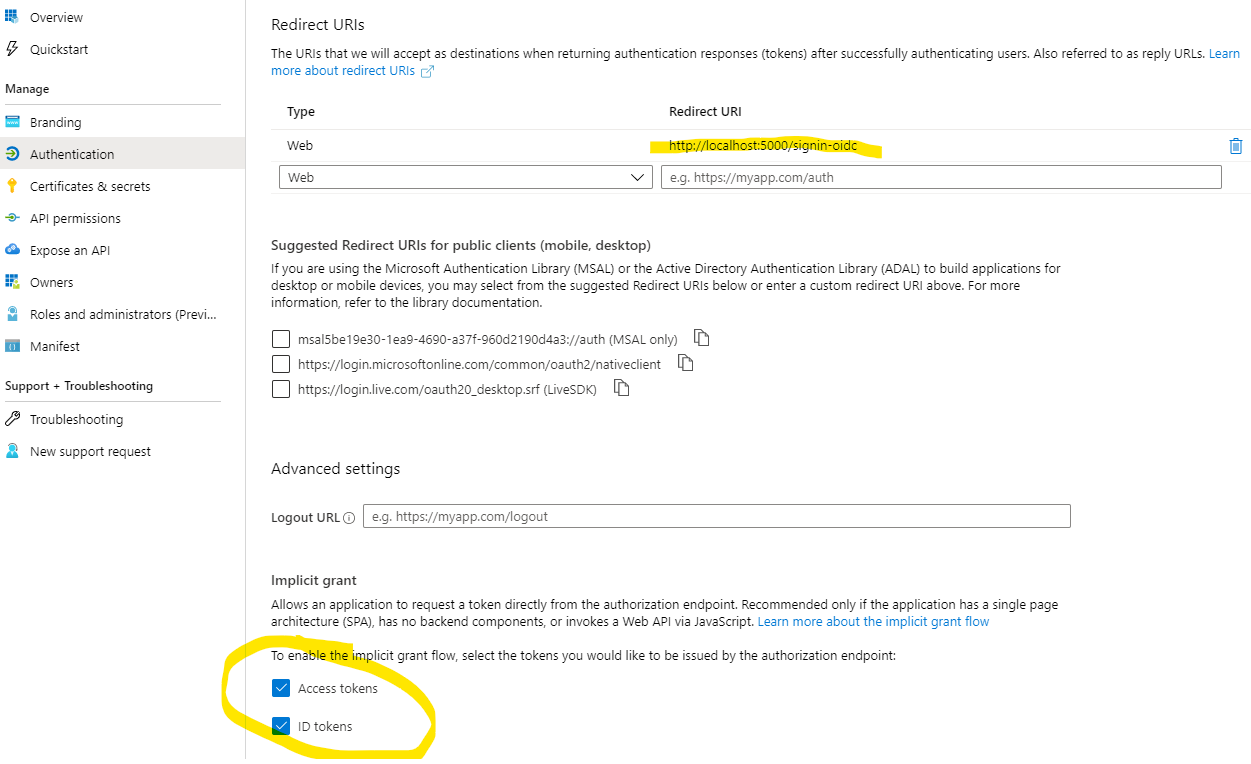Demo for a scenario where the following tools are used:
- Ocelot Gateway (Gateway.sln)
- Microservices behind the Ocelot Gateway (Microservices.sln)
- Website in front of the Ocelot Gateway (MvcTestSite.sln)
- IdentityServer (IdentityServer.sln)
- Azure AD
Requires .NET Core SDK 3.1.100.
The following services are behind the Ocelot:
- Microservice1
- Microservice2
- SuperMicroservice
- IdentityServer
MvcTestsite sits in front of the Gateway.
By default the following permissions are applied:
- Microservice1 can call Microservice2 but not SuperMicroservice.
- Microservice2 can call Microservice1 but not SuperMicroservice.
- SuperMicroservice can call Microservice1 and Microservice2.
- MvcTestSite's client can call Microservice1 and Microservice2 but not SuperMicroservice.
- MvcTestSite's Azure AD signed user can call Microservice1, Microservice2 and SuperMicroservice.
Use MvcTestSite to test microservices calling each other. The same site can be used to test Azure Ad sign-in and the calling of a microservice through the gateway.
Run the solutions in the following order:
- Microservices (should start Microservice1, Microservice2 and SuperMicroservice in the following ports: 44392, 44393, 44394)
- Gateway (https://localhost:44334/)
- IdentityServer (http://localhost:5000/)
- MvcTestSite (https://localhost:44322/)
Use "Privacy"-page to sign-in with Azure AD and to call the SuperMicroservice.
Create a new Azure AD app registration:
Copy the Azure Ad application settings to IdentityServer/Startup.cs.

